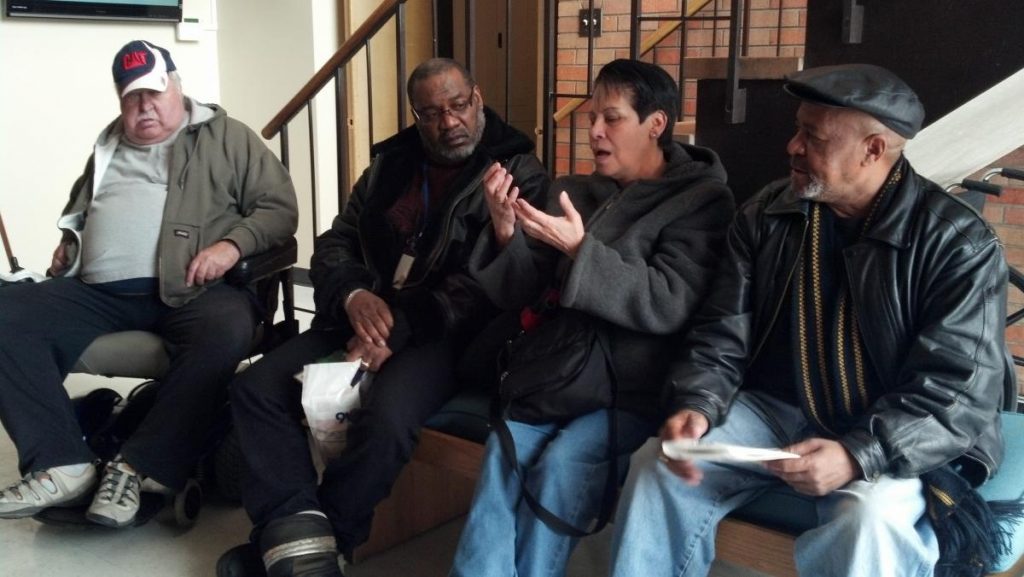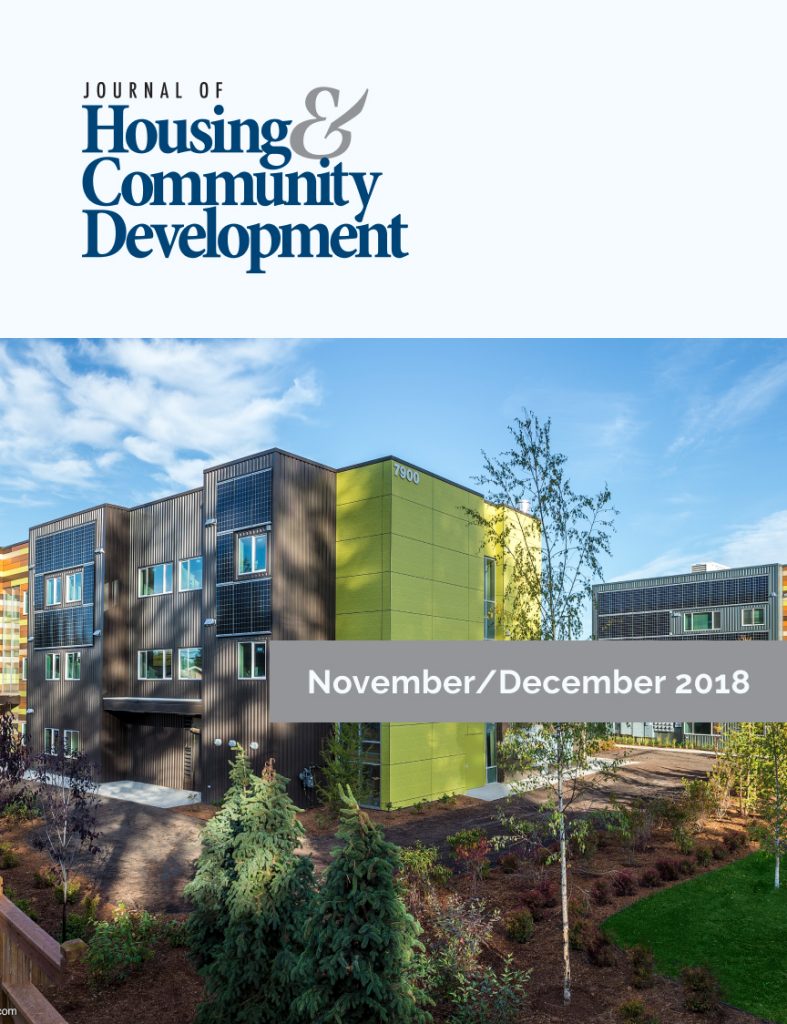Award of Excellence: Tackling Mental Health
The Denver Housing Authority (DHA) wins a 2017 Award of Excellence in Client and Resident Services for creating the Health Navigators (HN) program, which provides mental health education, resources, and doctor referrals. Nominated from among the NAHRO Award of Merit winners each year, the Awards of Excellence winners are chosen by national juries and honored at the annual National Conference and Exhibition in October. They represent the very best in innovative programs in assisted housing and community development.
Senior and disabled residents are at greater risk for behavioral health conditions because they tend to live alone, have little behavioral health education, are low-income, and have higher instances of both uncontrolled chronic conditions and functional impairment. They are also more likely to experience domestic violence and trauma, putting them at a high risk for poor overall health. Many seniors also do not recognize the signs of depression because they often attribute its symptoms as a normal part of aging.

A large majority of DHA’s senior and disabled residents have inadequate health care coverage or have Medicare/Medicaid, which can make it difficult to find mental health treatment with providers who accept their insurance. They also face multiple barriers to accessing sustainable healthcare services such as low income, disabilities, limited English and/or education, limited or no transportation, and a lack of personal health literacy.
While all of DHA’s senior housing sites currently have service coordinators that provide basic referrals and case management services, they are not trained to recognize and provide referrals for medical and mental health services. The Health Navigator (HN) program was created to fill this gap in services, and to increase the physical and mental health of DHA’s residents.
After initiating the program at a pilot site, DHA realized that residents are more likely to seek help or ask medical questions from someone they trust. HNs work with on-site coordinators who have a relationship with the residents to gain the residents’ trust and to expand their care to include medical and behavioral health education and services. They meet with residents and coordinate doctor appointments, arrange transportation to the appointments, assist with medical and insurance forms, and help patients prepare questions for their doctor.
HNs also screen residents for depression and other behavioral health issues during their routine health navigation meetings and provide health information in a culturally sensitive, linguistically appropriate manner. HNs are also trained to identify mental health needs and make appropriate referrals to community agencies that can meet a resident’s needs.
Currently, DHA has HNs are on-site at three senior and disabled locations. They assist over 500 low-income senior and disabled affordable housing residents.
DHA use program evaluations provided by an outside provider as an ongoing management and learning tool to measure and improve the HN program’s effectiveness. They track their progress in an online software program called “Tracking at a Glance” (TAAG). All services and referrals from HNs are entered into TAAG to be tracked and made available for reporting. Reports are run on a monthly basis to monitor progress towards their goals and to see if adjustments are needed. The program’s impact will be measured by how successful the program is at meeting the needs identified by the residents in their behavioral health assessment objectives.
A program evaluation completed by Denver Public Health in June 2016 showed that approximately 850 residents engaged in 4,760 hours of healthy living activities. The Health/Patient Navigator services reached at least 63 percent of the residents they serve, surpassing their goal of 40 percent. The number of residents who were able to see a doctor when necessary increased from 35 percent in 2012 to 83 percent. The number of residents who ranked their health as good on a survey increased by 21 since the start of the program.
The total cost of financing the DHA Health Navigators was minimal. The Health Navigator’s salaries are provided by a grant from the Colorado Health Foundation and the Denver Foundation. Since the HN program utilizes community partnerships, no additional expenses will be necessary to replicate the program at other housing authorities. They also partnered with the Colorado Health Foundation and the Denver Foundation to create healthy living programming and health and behavioral health navigation resources that are specific to DHA neighborhoods. DHA has been committed to aggressively pursuing funding opportunities to provide health programming for its residents and created three 501c3 non-profit subsidiaries to increase their competitive ability to apply for non-profit funding for the HN program.
Housing authorities typically provide safe, affordable housing options to their community’s lowest-income residents, but DHA has taken this mission and expanded it to have a larger impact on their residents’ health and wellbeing. The HN program is innovative for bringing health and behavioral services on-site to better engage and develop relationships with their residents. By removing numerous financial, education, and transportation barriers to receiving quality healthcare and preventative care, their residents feel empowered to take more control of their health.
More Articles in this Issue
Award of Excellence: Valencia Grove Affordable Housing Community
The Housing Authority of the County of San Bernardino won a 2017 Award of Excellence…Award of Excellence: Golden Inn and Village Affordable Housing Community
The Housing Authority of the County of Santa Barbara won a 2017 Award of Excellence…Award of Excellence: CityScape at Belmar
Metro West Housing Solutions won a 2017 Award of Excellence in Project Design for building…Award of Excellence: Blue Springs Crossing Apartments
Northeast Oregon Housing Authority (NEOHA) won a 2017 Award of Excellence in Project Design for…Award of Excellence: Solar Installation with STEM Resident Platform
The Rockford Housing Authority won a 2017 Award of Excellence in Project Design for modernizing…Award of Excellence: Building for the Future
The Cincinnati Metropolitan Housing Authority wins a 2017 Award of Excellence in Client and Resident…Award of Excellence: Affordable Grocery Delivery Program
The Saint Paul Public Housing Agency (PHA) wins a 2017 Award of Excellence in Client…Award of Excellence: Oakwood Senior Apartments
The Housing Authority of the City of Santa Paula (SPHA) wins a 2017 Award of…Award of Excellence: A Book for Every Child Initiative
Housing Alliance and Community Partnerships (HACP, formerly known as the Housing Authority of the City…

